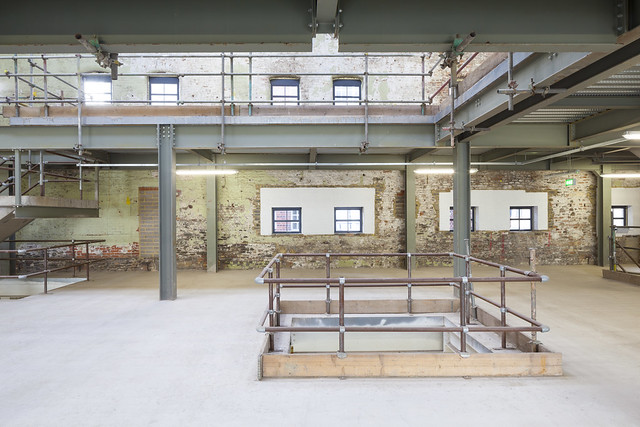Choosing Bespoke Furniture Solutions
Furniture plays an important role in defining the overall design of living or working spaces. Its unique style reflects the owner’s personality, preferences and lifestyle.
Whether it’s an elegant built-in bookcase that maximizes storage space or a cleverly disguised Murphy bed, bespoke furniture solutions can transform homes. They deliver multiple advantages, including modularity and flexibility.
Modularity
Modularity is one of the key components that distinguish custom furniture solutions from other products. It allows manufacturers to streamline production processes, reduce manufacturing time and costs, and improve product quality. This is made possible by dividing a product into smaller modules that can be easily assembled together.
The modular nature of custom furniture solutions also enables them to be easily adjusted as business needs change. This flexibility offers significant cost advantages, eliminating the need for costly furniture replacements. Additionally, modular furniture is often designed to make the most of space, making it a great choice for tight spaces or irregularly shaped rooms.
Functionality is another important feature of modular furniture solutions. They provide a useful workspace for office staff that encourages collaboration and innovation. Furthermore, they allow for a flexible working environment that is scalable and adaptable to the needs of employees.
While modular furniture is a relatively new trend, it has already gained immense popularity due to its versatility and adaptability. However, it is important to note that some modular items are more fragile than others and may break if they are not handled properly.
Flexibility
In the residential space, custom furniture solutions are often designed with flexibility in mind. Whether it’s a built-in bookshelf that climbs all the way to the ceiling, creating a cozy reading nook, or a Murphy bed that disappears with a gentle push, these bespoke storage solutions seamlessly integrate into living spaces, maximizing space and offering a unique design aesthetic.
For businesses, flexibility allows for quick office reconfigurations to accommodate changing business needs. Adaptable desks, modular partitions, and versatile seating arrangements allow for the workplace to evolve with emerging technologies and work methodologies. This agility in the office ensures that workspaces continue to support employees’ productivity and well-being.
Flexible office furniture also supports remote and hybrid work models, making it easier for employees to transition custom furniture solutions between in-office and home working environments. Lightweight, portable furniture pieces enable workers to bring their work with them, fostering collaboration and a sense of connectedness. Height-adjustable desks, movable monitor mounts, and ergonomic chairs provide the tools employees need to tailor their immediate work environment and improve overall health and wellbeing.
Customization
Unlike pre-made furniture, custom pieces are designed to fit seamlessly into a space. This allows for optimal use of available space, reducing clutter and improving organization. It also ensures that every feature and detail is a perfect match with the client’s style preferences. However, the success of a customized furniture project is contingent on the skill and ingenuity of the designer or artisan. Misunderstandings and differences in vision can lead to costly mistakes and disappointment with the final product.
Furniture customization often allows customers to go a step further with add-ons and accessories. This enables them to make their furniture truly their own, such as adding cup holders and storage solutions that maximize functionality. It also provides them with a greater range of options, such as having built-in charging ports and wire management systems in places where they are needed most.
In commercial settings, customizable furniture can help align with a brand’s identity and serve as a tangible manifestation of the company’s culture and ethos. For example, home furniture group Platform’s endless furniture capabilities allow companies to create cohesive and immersive environments that resonate with their audience.
Sustainability
Sustainability is an important consideration when purchasing new furniture. Choosing designs that are functional and durable, rather than fad-driven or short-lived, will ensure that your pieces are not only affordable but also environmentally friendly. Look for manufacturers that use sustainable packaging and have a low-impact transportation strategy.
Many major furniture manufacturers are embracing sustainability in their production processes. They are focusing on using renewable energy sources, reducing waste, and minimizing the use of harmful chemicals. They are also establishing sustainability initiatives that prioritize longevity and resourcefulness in their products.
At Insightful Environments, we strive to incorporate sustainability into our furniture solutions. We encourage our clients to take a circular economy approach to their space planning and specify furniture that can be easily disassembled, refurbished, and redeployed, rather than discarded. We also make sure that our products can be fully recycled at the end of their life cycle to minimize waste and the need for additional raw materials extraction. We also source our materials and manufactures locally whenever possible to further reduce environmental impact. This helps to support local economies while reducing the carbon footprint of our products and services.
Aesthetics
As a personalized solution to the organizational challenges of modern living, bespoke furniture solutions offer both aesthetic appeal and practicality. Aesthetically, they provide a sense of calm and serenity to the living environment, reflecting your own personal style and taste. Their practicality, on the other hand, makes them a vital tool for optimizing your space and making it feel as functional as possible.
The concept of aesthetics focuses on the concepts that are considered beautiful or pleasant to look at and/or experience. It is closely related to the philosophy of art, which is concerned with the nature and concept of artistic works. There are a number of pure aesthetic qualities such as beauty, sublimity, grace, artistic excellence, and powerful expression. However, everyday aesthetic qualities such as messiness, shabbiness, cuteness, and prettiness also exist.
The design process starts with assessing the physical space where the furniture will be placed and taking into account its architectural features and existing decor. Then, skilled craftsmen bring the design to life, ensuring that it is in line with your vision and specifications.


